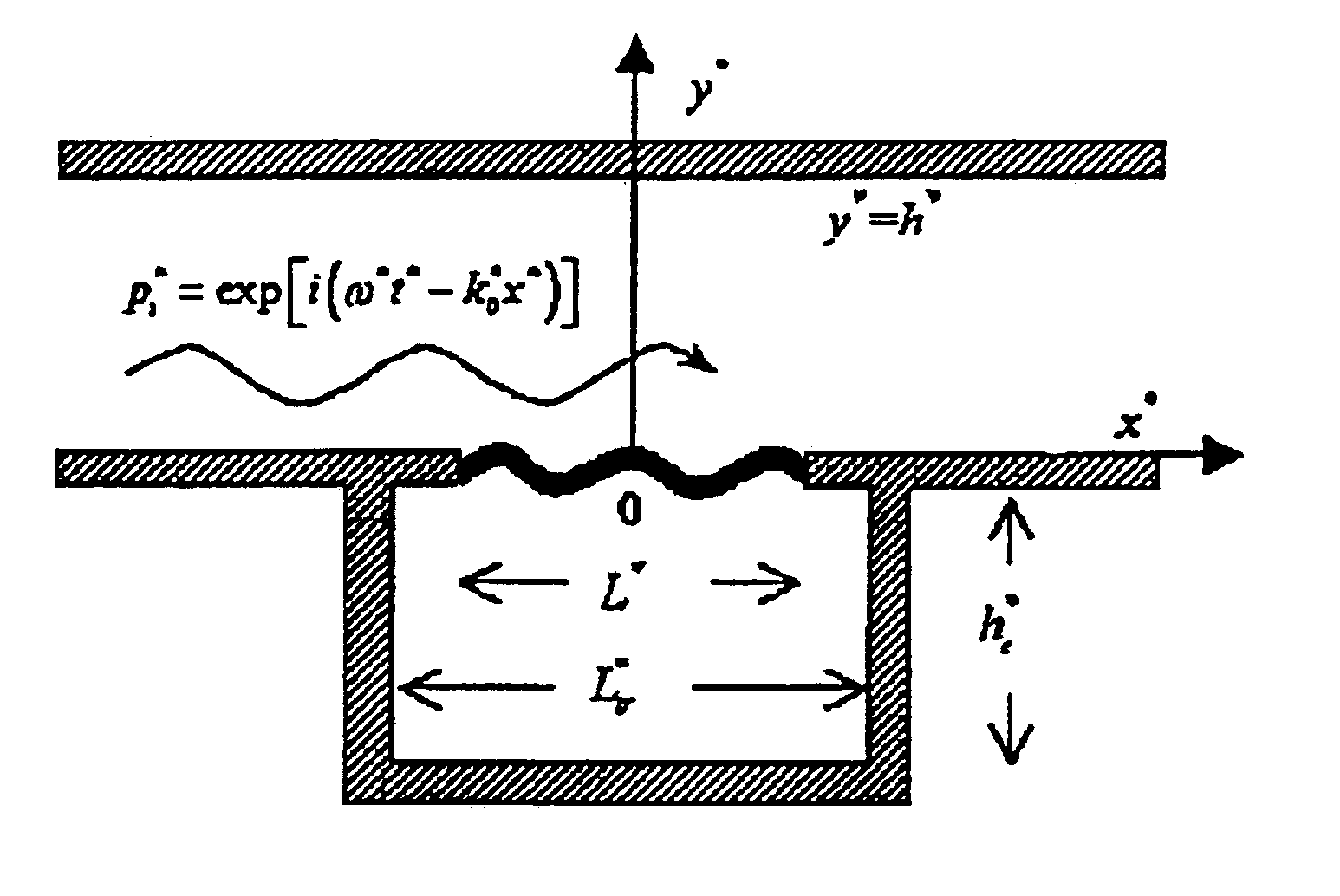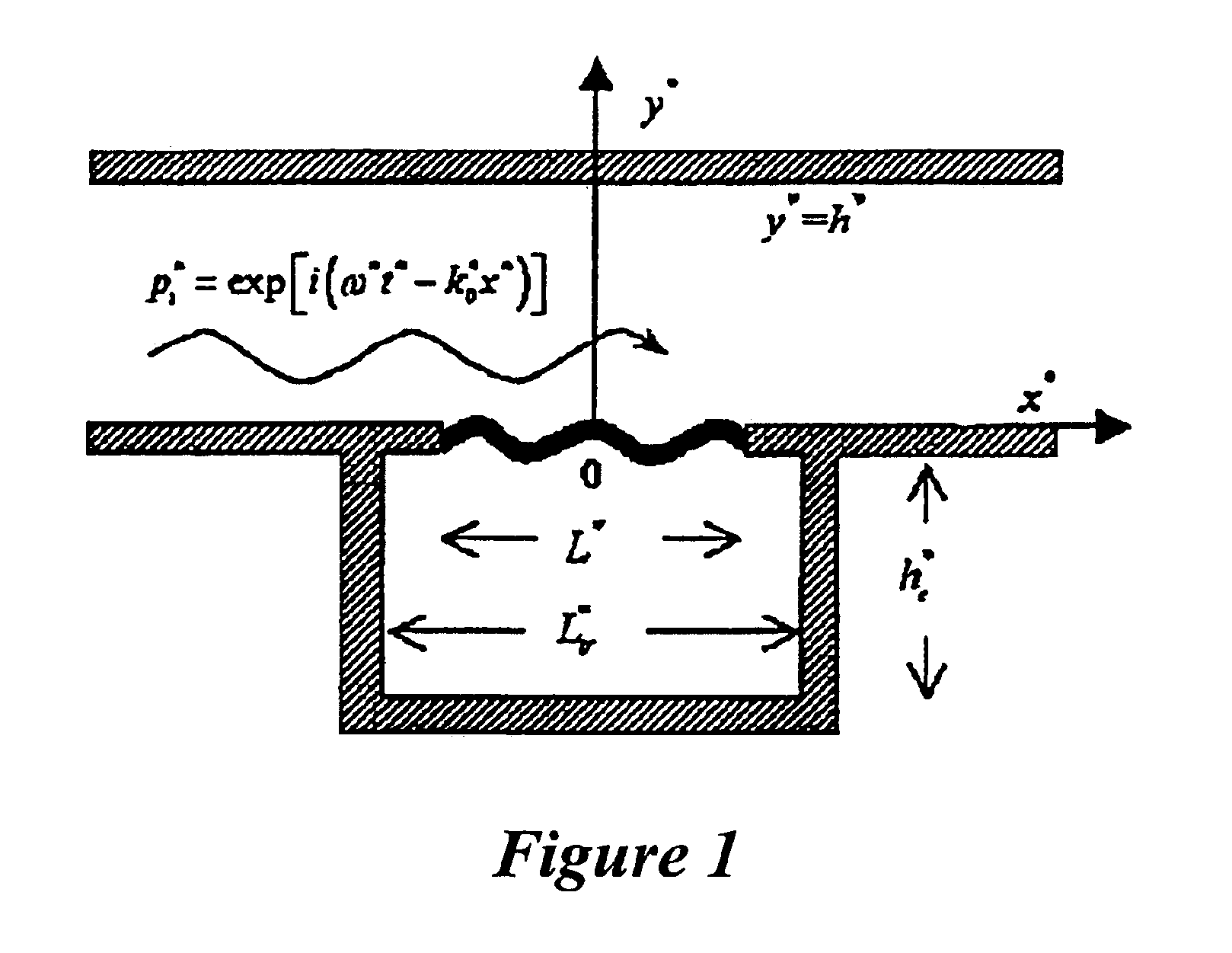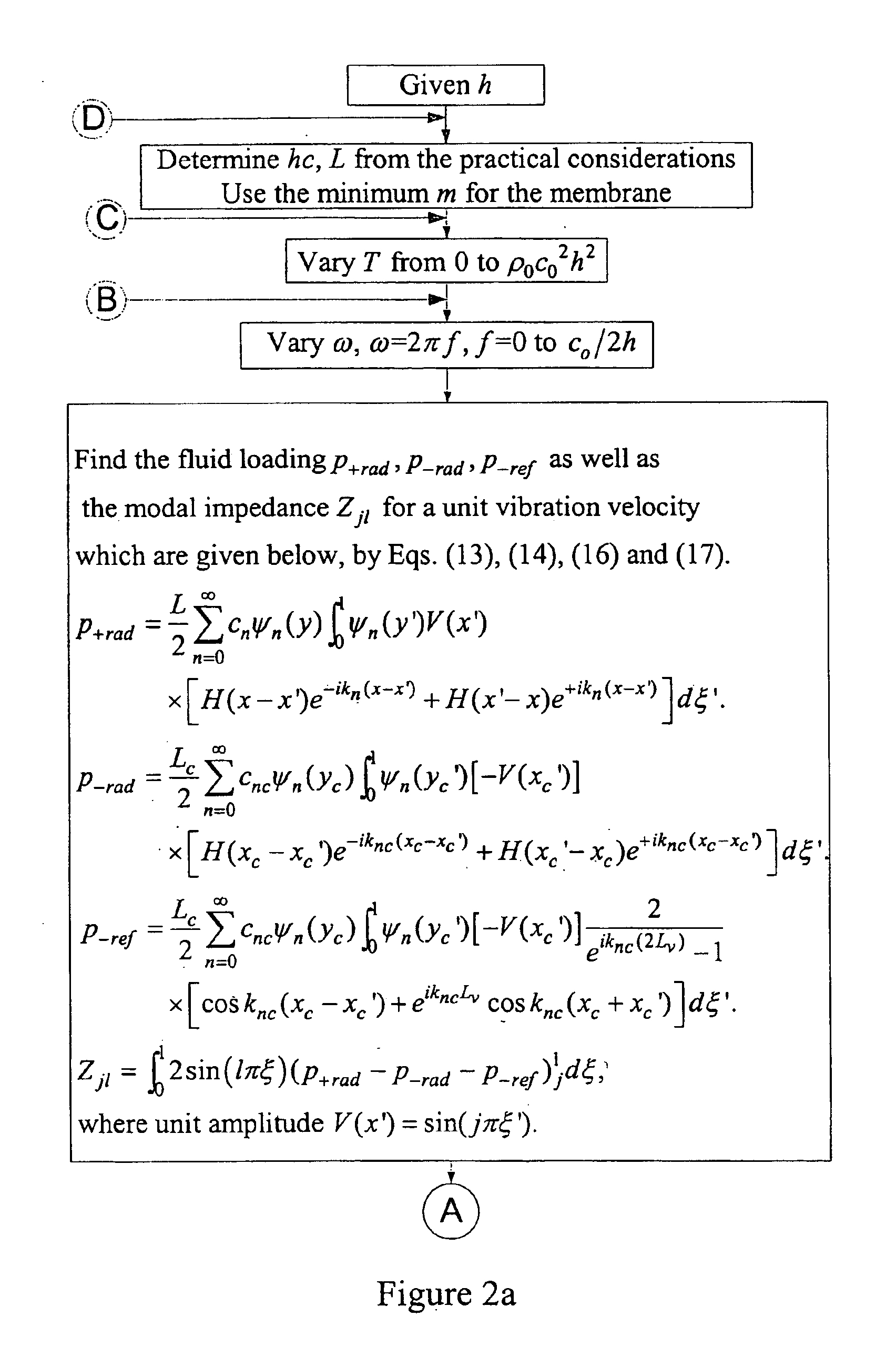Methods for designing a chamber to reduce noise in a duct
a technology of duct noise reduction and design method, which is applied in the direction of noise figure or signal-to-noise ratio measurement, instruments, machines/engines, etc., can solve the problems of ineffective sound absorption techniques, inconvenient cleaning of linings, and often over-looked ranges, so as to reduce noise
- Summary
- Abstract
- Description
- Claims
- Application Information
AI Technical Summary
Benefits of technology
Problems solved by technology
Method used
Image
Examples
Embodiment Construction
[0034]This invention is now described by way of example with reference to the figures in the following paragraphs. List 1 contains a list of symbols used in this specification so that such may be easily referred to.
[0035]Objects, features, and aspects of the present invention are disclosed in or are obvious from the following description. It is to be understood by one of ordinary skill in the art that the present discussion is a description of exemplary embodiments only, and is not intended as limiting the broader aspects of the present invention, which broader aspects are embodied in the exemplary constructions.
[0036]In the field of architectural acoustics, analytical efforts have been made to predict the acoustic performance of such panels. For example, Kang and Fuchs (1999) successfully treated the problem of microperforated membrane as a parallel connection of the (impervious) membrane and apertures. This is a locally reactive model which nevertheless reveals most of the essenti...
PUM
 Login to View More
Login to View More Abstract
Description
Claims
Application Information
 Login to View More
Login to View More - R&D
- Intellectual Property
- Life Sciences
- Materials
- Tech Scout
- Unparalleled Data Quality
- Higher Quality Content
- 60% Fewer Hallucinations
Browse by: Latest US Patents, China's latest patents, Technical Efficacy Thesaurus, Application Domain, Technology Topic, Popular Technical Reports.
© 2025 PatSnap. All rights reserved.Legal|Privacy policy|Modern Slavery Act Transparency Statement|Sitemap|About US| Contact US: help@patsnap.com



